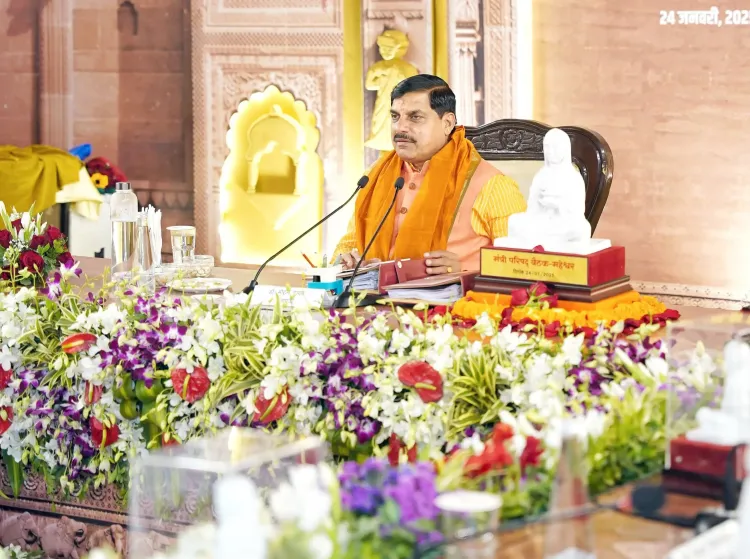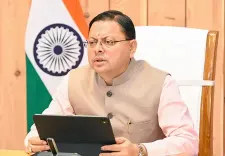Madhya Pradesh Government Enforces Liquor Ban at Sacred Sites

Synopsis
Key Takeaways
- Madhya Pradesh cabinet enacts liquor ban at religious sites.
- Ban affects 17 significant religious locations.
- Commemoration of Ahilyabai Holkar's 300th birth anniversary.
- Political implications and past criticisms from party members.
- Concerns over excise revenue and funding for public schemes.
Bhopal, Jan 24 (NationPress) In an impactful move, the cabinet under Chief Minister Mohan Yadav has approved a proposal to prohibit the sale of liquor at religious sites across Madhya Pradesh.
During a special cabinet meeting convened in Maheshwar today, Chief Minister Mohan Yadav announced the decision to ban liquor at various sacred locations in the state, as stated in an official announcement.
This approval came during a special session commemorating the 300th birth anniversary year of Ahilyabai Holkar, the 18th-century ruler from the Holkar dynasty, held in Khargone district’s Maheshwar, a significant site in the Holkar lineage.
The timeline for implementing this order remains unclear.
Chief Minister Yadav and his cabinet members paid tribute at the royal throne within the historic fort and honored Ahilyabai by laying flowers at her statue. He remarked, “The unmatched contributions of Lokmata to India’s cultural identity, including the construction and restoration of temples and monasteries, will forever be cherished.”
This liquor ban will affect 17 religious sites, including Ujjain, Orchha, Salkanpur, Chitrkoot, Omkareshwar, Maihar, Amarkantak, and areas surrounding the Pashupatinath temple in Madhya Pradesh.
It is noteworthy that liquor prohibition has been a contentious political issue within the BJP in Madhya Pradesh. Saffron leaders, particularly former Chief Minister Uma Bharti, have frequently criticized the government for hesitating to enforce a liquor ban. Last year, Bharti even protested by throwing stones at liquor shops in Bhopal and demanded the closure of liquor stores near schools and religious sites.
Furthermore, former Bhopal MP Pragya Thakur has also voiced her opposition to liquor sales within the state.
One reason previous BJP administrations have refrained from implementing prohibition is the significant excise revenue, projected to reach Rs 15,000 crore for the fiscal year 2024-25. This revenue serves as a crucial financial resource, especially as the government manages the substantial costs of popular schemes like the Ladli Behna Yojana, amounting to over Rs 20,000 crore annually. State departments have reported issues with insufficient funding for ongoing initiatives.
“We are committed to protecting our youth, who represent the future of our nation. The Madhya Pradesh government will enforce a liquor ban at 17 religious sites,” Chief Minister Yadav stated on Thursday.










